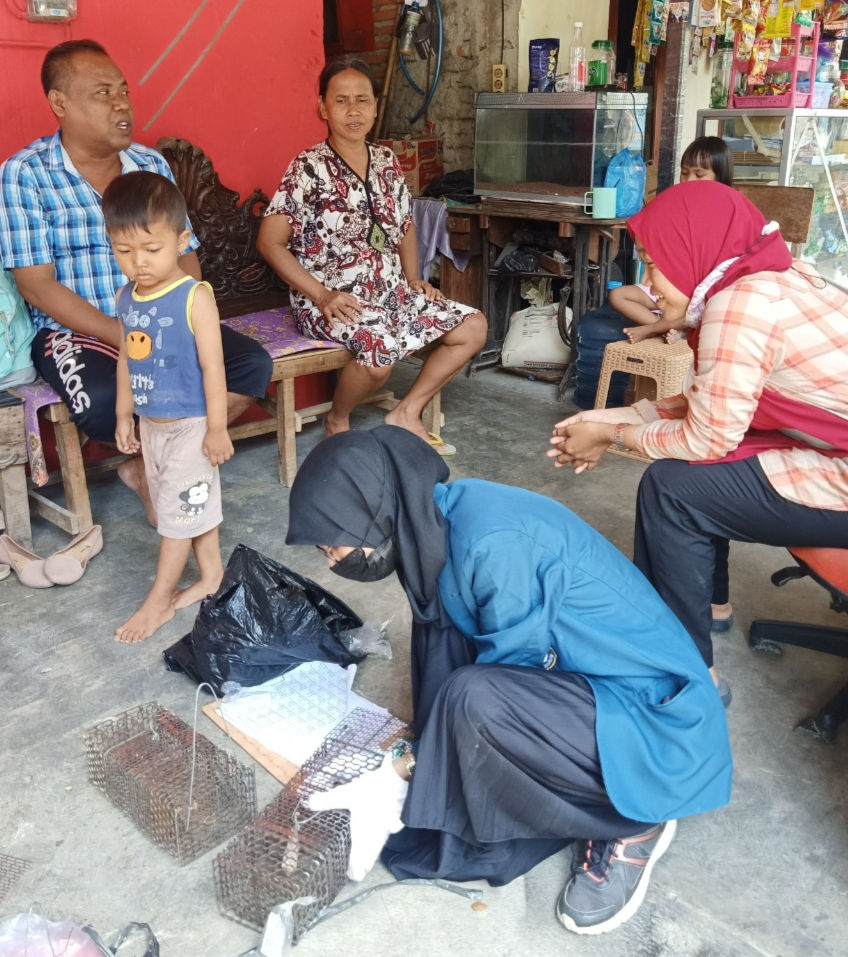Advancing One Health Integration in Indonesia
- SEAOHUN

- 1 day ago
- 3 min read

A Climate-Smart, Community-Led Response to Zoonotic Threats
Through the SEAOHUN One Health Research and Training (OHRT) Awards Program, a team from Diponegoro University led by Dr. Ir. Martini, M.Kes., launched a project to mitigate zoonotic disease risks in flood-prone Semarang, Indonesia. By integrating multisectoral collaboration and empowering women in the frontline, the project became a pioneering example of how local communities can lead in climate-informed public health strategies. This article summarizes the project’s goals, activities, lessons, and anticipated long-term impact.

Project Implementation Experience
The project began with mapping vector density and identifying environmental risk factors through 14 days of field surveys. High populations of mosquitoes and rats were found in areas with stagnant water, highlighting sanitation challenges intensified by climate change. GIS analysis helped predict zoonotic disease transmission patterns, which informed intervention zones. The project then convened cross-sector partners—including government agencies, academia, civil society, and media—through Focus Group Discussions (FGDs). These led to the creation of strategic plans and an Integrity Pact, and to piloting a new concept: 'Climate Smart Villages.'
Building One Health Knowledge and Skills
The SEAOHUN OHRT initiative enhanced both technical and soft skills for the project team. Members gained experience in environmental health surveillance, data-driven decision-making, stakeholder engagement, and communication. GIS modeling and data validation skills were particularly strengthened. Just as important was learning how to build trust and coordinate with sectors that traditionally work independently.
Empowering Women for Health Resilience
The project’s highlight was the two-day women-led training conducted in November 2024, involving 35 participants from climate-affected areas. Sessions included presentations on zoonoses, disaster preparedness, climate adaptation strategies, and community engagement. Women learned to use eco-enzyme production, rainwater harvesting, and biopores as practical tools to enhance resilience. Pre- and post-tests showed significant knowledge improvement, and participants drafted action plans tailored to their community needs.

Strengthening Institutions and Influencing Policy
At the academic level, Diponegoro University incorporated case studies and data from this project into its public health curriculum. A policy brief and module were developed and presented to the Semarang Environmental Agency, which supported including health within its climate adaptation initiatives. The project is now influencing the design of integrated services and advocating for long-term health monitoring systems in Semarang’s climate plans.
Lessons Learned and Future Directions
This project underscored the value of early engagement with stakeholders and of adapting strategies to local contexts. Although challenges such as time constraints and data processing delays arose, the strength of the community partnerships sustained progress. The team plans to expand the Climate Smart Village model and advocate for national-level adoption of community-based, One Health-informed planning approaches.
Conclusion
The SEAOHUN OHRT Awards Program enabled a model that bridges climate science, public health, and community leadership. By centering local voices and data, this initiative not only addresses zoonotic threats but also strengthens resilience against future climate-related health crises. Indonesia’s example offers valuable lessons for the region and underscores the importance of community-driven, multisectoral collaboration in achieving sustainable health outcomes.
Team Leader:Dr. Ir. Martini, M.Kes – Head of Epidemiology and Tropical Disease Department, Faculty of Public Health, Diponegoro University
Team Members:
Dr. K.M. Dra Ayun Sriatmi, M.Kes – Department of Health Administration and Policy | Lead on Health Management Systems
Pangi, ST., MT – Department of Regional & City Planning | Geospatial Analysis Specialist
Dianis Januar Khoirunnisa, SE.MM – Head of Natural Resources Economic Working, Regional Development Planning Agency | Sustainability Analyst
Siti Rahayu, SKM – Epidemiology Postgraduate School | Survey and Data Analyst


















Comments